If you missed the first two installments of this series, start here with hospitality and continue with beauty.
Americans can be so small-minded. We can be out of touch with what life is really like in other parts of our land and especially in other countries. We can so easily think that our community and its values are the center of the universe. Or that there aren’t equally good (if not better) ways of doing things in other regions of the world. Or believe that the same level of professionalism we live by is not practiced in other places (especially in Africa, gasp!).
For these reasons and so many more, I believe travel is good for the soul.
Getting out of town. Seeing something new. Saving our funds for an international trip (if possible). Why? Because our eyes are widely opened. We can not return from travel being the same people when we left.
In our shock we are reminded:
Not everyone speaks English . . .
Electricity or hot water is not always a given . . .
There’s no such thing as fast food on every corner . . .
And in traveling, we see the world as it really is instead of just what we know (especially if we're operating from a place of privilege).
This week, I’m in East Africa in the process of starting something new connected to orphan care. Something new I can’t wait to tell you all about when the all plans come together.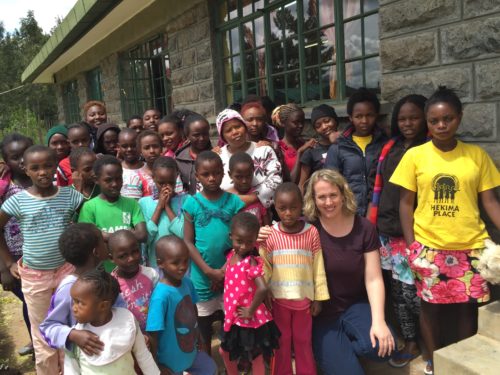
But for now, this is what I know: the opportunity to travel changes everything about your sight.
Even though Kevin and I spent 3 years on the road as nomads while he held a position at Feed the Children and were gifted to see so much in so many countries, I’ve realized once again that a culture is never something you “know” no matter how many times you visit a particular place.
This trip I’ve learned, as I do every time I visit.
Things like mice can be black (not just white or grey like they are in the children’s storybooks I grew up reading). The cat brought one to the doorstep of where I am staying!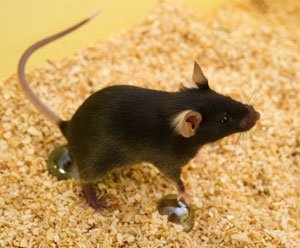
Things like flying ants are creatures that come up from the ground and swarm after a strong hot rain. But they’re harmless and often die by morning (and can be consumed as good protein).
And things like it’s best to be home before the rains come, always. Traffic can be at a complete standstill. Often a standstill that lasts 12 hours meaning you sleep in your cars on the side of the road!
What a spiritual life lesson this is! For isn’t God ultimately the One we come to call Mystery? The One who is beyond us? The One we come to understand in the same vein of this Thomas Merton prayer:
“My Lord God, I have no idea where I am going. I do not see the road ahead of me. I cannot know for certain where it will end. Nor do I really know myself, and the fact that I think that I am following your will does not mean that I am actually doing so."
I know that budgets in many households can be tight year after year, and it is often it is the weekend out-of-town or the vacation that is first to go. But, the next time you have some extra income and you’re faced with the choice of buying a thing and the experience of travel, choose travel, my friends.
Travel will be good for your soul.
For, as you go, you might just find yourself meeting a new friend, tasting a new dish, or learning a new song that will be God coming close.
I know God has been close to me all week. And I’m so grateful.
Jambo (hello) from Kenya.
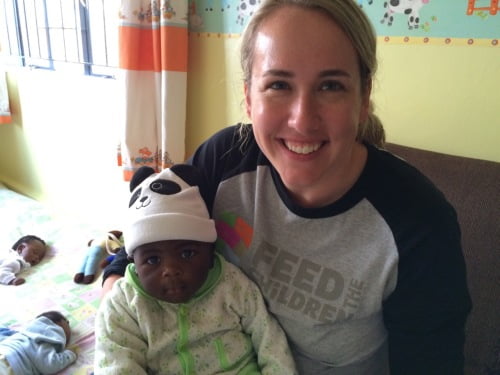 For the past two weeks, I've found myself traveling in East Africa to participate in the work of Feed the Children.
For the past two weeks, I've found myself traveling in East Africa to participate in the work of Feed the Children.
I've taken early morning flights. I've brushed my teeth with bottled water. I've visited primary schools. I've watched the sun set over the Indian Ocean. I've taken lots of pictures for FEED's social media. I've helped to cook Thanksgiving dinner for 50 kids. I've sorted Christmas presents. I've eaten more chips (french fries) than I should. I've held babies, lots of them.
In all of these things, I'm learning.
I'm learning about the importance of traveling with lots of vitamin C, good shoes and your own plane blanket.
I'm learning about having throw-up cloths near by at all times when holding babies, and never to underestimate the power of showing a child a picture of his or her face (what joy!).
I'm learning that slowing down is the way of life in Tanzania and good tea is everything you dream it to be and more in Kenya.
It's my 6th trip to the region since 1999. My East African country list includes Kenya, Malawi, Tanzania, Uganda and Rwanda as well as having flown through Ethiopia on multiple occasions. This region feels more and more part of my life every time I visit. In fact, the Feed the Children staff now greet me when I arrive, "Welcome home!"
I'm learning that when an African says, karibu (welcome) they really do mean it and want you to feel a part of their lives and space. 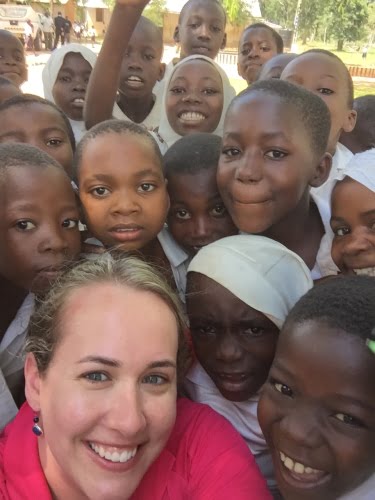
I'm learning the sweetness of friendship is so very possible here, even if there were so many reasons to be disconnected.
But even more than this, this preacher on the plaza is learning about my faith, the faith that I want to have in Jesus.
Coming to Africa reminds me that the Jesus I think I know isn't wrapped up in my American citizenship. Jesus always crosses racial and language divides. Jesus always leads us to the stories of the most vulnerable and ignored. And then asks us do something about what we hear!
Most of all I am learning to not be surprised when Africa opens my heart, like no other place on earth can.
To new friends.
To eyes that tell stories.
To shocking possibilities.
To hope.
One of my favorite authors, Anne Lamott says this: “Hope begins in the dark, the stubborn hope that if you just show up and try to do the right thing, the dawn will come. You wait and watch and work: you don't give up.”
There's so much I'm hoping for here.
For more children to be well-fed.
For nations and their leaders to be at peace.
For my own heart to live into what has eternal value.
Africa: what a classroom!
I'm so glad I'm here.
 What does it mean to be in global community?
What does it mean to be in global community?
It's a question I've asked myself a lot lately.
In August, I made my third trip to Africa in the last two years. I will go again by the end of the year. The Addis Abba, Ethiopia airport feels as homey to me as the Chicago or Atlanta one does now.
Over the course of all of the traveling, the people I've met along the way have stayed close to my thoughts long pass my departure time. They've become friends.
I've become vested in their wellbeing and theirs in mine.
I've prayed for those with sick grandmothers. I've celebrated with dear ones over babies born. And I've taken joy in the life updates that come from all of the online programs that help us stay in touch these days. It's the beautiful part of what global community is about. (And I'm so thankful to Feed the Children for giving me this experience!)
And, so lately I've been wondering specifically about the Ebola outbreak. Though it has only affected those who live in the West African region and I frequently travel to the East-- still I've watched the coverage (and lack their of) with vested interest too. I want my friends and friends of friends to be ok too.
Last week, I wrote an op ed that was carried by the Associated Baptist Press. I thought readers here might be interested in it too. Ebola, if we say that we are part of the global family of faith-- we can't ignore it:
Early in August, I traveled with a Feed the Children delegation to Kenya to visit school feeding programs and a Nairobi orphanage, as I now do about twice a year. Part of my morning routine while there and for most Kenyans is reading a national newspaper. The headlines contained a single story: Ebola, the ruthless and deathly virus is infecting thousands in the West African nations of Guinea, Liberia and Sierra Leone.
I’m sure such a headline would have not made it into my newsfeed at the time if I had not been in Kenya. Though a contagious disease, it was still an African problem. Why would Americans be asked to care? Read the rest of the article here.
And join me in supporting organizations that are on the ground now doing something about it!
Check out Direct Relief, Doctors without Boarders, and IMA World Health.
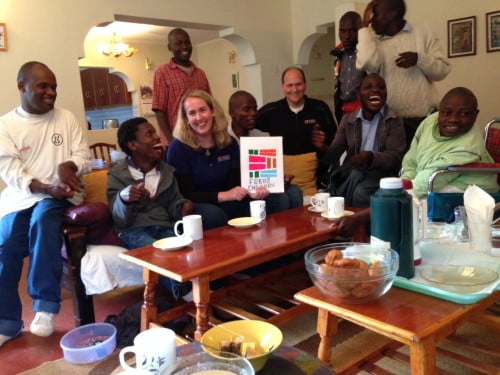 My mind has been dragging and my heart has lingered in this week and half that I've been home from Kenya. Thus, the reason the part 2 of this series has taken me so long to write.
My mind has been dragging and my heart has lingered in this week and half that I've been home from Kenya. Thus, the reason the part 2 of this series has taken me so long to write.
What can I say in response to a place that captures my heart so much? How can I adequately describe such an experience? Inadequately of course.
I left Kenya this time, the same way I leave Africa every time: full.
Full of new ways to articulate my own story.
Full of new discipline for my daily routines.
Full of new drive to do everything I can to support the mission of Feed the Children.
And most of all, full of love for the people for whom we serve and serve alongside. God gave so many saints to the ministry of Feed the Children and I couldn't be more grateful to know them.
So what can Americans learn from not being in America?
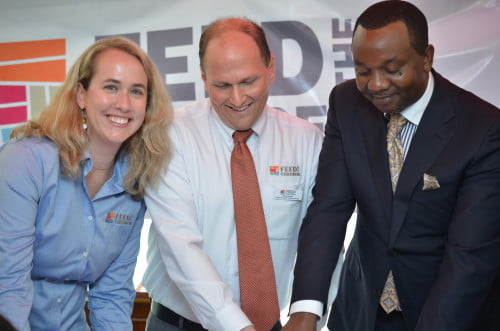 Here are just some of my additional thoughts:
Here are just some of my additional thoughts:
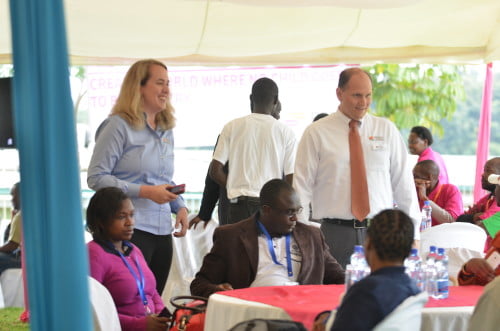 Might there be a way of living that sees Africans (or insert a cultural group other than my own) as completely equal partners in this work of learning how to be a human being, even with the differences?
I want to find more of this way of living-- the eyes wide open kind-- even as I am at home now.
Knowing that there are prejudices in me still waiting to be uncovered, judgments of my eyes that need to be brought to light and misconceptions I have about other colors of skin that need to be called out.
Being an American has given me (and maybe you too) so many gifts. Freedom to be is a beautiful part of our citizenship.
But, may we all not forget that we're not the only ones with blessings.We may be materially rich but we are oh so spiritually poor.
Our African, Asian and European brothers and sisters have much to teach us out of their blessings too.
Might there be a way of living that sees Africans (or insert a cultural group other than my own) as completely equal partners in this work of learning how to be a human being, even with the differences?
I want to find more of this way of living-- the eyes wide open kind-- even as I am at home now.
Knowing that there are prejudices in me still waiting to be uncovered, judgments of my eyes that need to be brought to light and misconceptions I have about other colors of skin that need to be called out.
Being an American has given me (and maybe you too) so many gifts. Freedom to be is a beautiful part of our citizenship.
But, may we all not forget that we're not the only ones with blessings.We may be materially rich but we are oh so spiritually poor.
Our African, Asian and European brothers and sisters have much to teach us out of their blessings too. This week, I'm on travel with Feed the Children. Kevin and I have come to Africa to support the launch of the new Feed the Children brand and do some other important work as part of moving the mission of this organization forward.
It's been a joy for me to reconnect with the larger FEED family and put my feet on the soil of a nation that I adore! I've tasted again ugali and greens and some of the best tea you can find anywhere on earth. I've hugged some babies who were crawling the last time I saw them, but now are walking! And I've been given the given some amazing gifts of love and acceptance by co-laborers here in our great mission of no child going to bed hungry.
And as I'm having this fabulous multicultural experience, I've thought much about "What Americans Can Learn About America From Not Being In America." So I want to begin to share this three-part blog series with you:
Pride in one's country-- no matter where this is-- is something most of us share no matter where we live.
To be formed as a human being by a particular culture, language and cultural stories is simply part of what it means to be alive. We all love what we know.
However, what happens when your particular national story grows to be the ONE acceptable take on history?
What happens when your particular nation becomes the ONE acceptable point of view?
What happens when your traditions and practices become imposed on people of other nations as the ONE way?
While I am an American through and through, traveling always makes me quite aware of how Americans-- sometimes even unconsciously-- enter spaces.
We see the world from our distorted lens.
We think we know best-- in most things.
We are so good at giving advice to solve problems, but not staying around to see things through. (Read American foreign policy for the last 50 years if you don't believe me!)
We think the way we eat and bathe and dress is the only acceptable way to find happiness.
Coke and IHOP pancakes anymore? You, don't have a granite tub? How can you live like that?
We think we can ignore the pain and suffering, the hardships, and the real stories of what it means to be a human being in a places without running water, refrigeration or two cars parked in a driveway.
Because why? We're American! Things are different in our context. Why must we adapt to anything else?
With living like this, we find ourselves with a spiritual problem: we see the world we want to see. We live in a world of blessings. Yet at the same time we are so poor.
In response, I found myself writing this litany of repentance for my fellow Americans (maybe even some other Westerners too). Maybe you might want to join in with in prayer as you read:
_____________________________________________
One: Lord, we confess to you that we've lost sight of how our world really is: a world where mothers must take 3 buses to find work. A world where children make their own toys with cardboard cut-outs in the street without supervision. A world where even the best education can't lift a man out from the slums.
Many: Lord, in your mercy, forgive us.
One: We confess how quickly we are to judge-- to enter as know-ers, not listen-ers. We talk without taking breaths about our plans, our programs, our successes. We assume that hard work and determination is all that a child needs to rise above their parents without ever meeting a child turned away from learning because her school fees weren't paid.
Many: Lord, in your mercy, forgive us.
One: We confess that we adore our ways of living. We like driving big cars. We like eating at restaurants where too much food is served on one plate. We like wasting toothpaste at the end of the tube. We like shopping in big bulk stores for what we already have.
Many: Lord, in your mercy, forgive us.
One: We confess that we like obsessing about problems like colors of cake frosting, wrinkles on our foreheads and the right kind of beer at baseball games. We consider our appearance and our bodily pleasure above all else.
Many: Lord, in your mercy, forgive us.
One: We confess that we money we spend on Starbucks, fast food and take-out dinners that could be better spent on putting a child with big dreams in Africa through college.
Many: Lord, in your mercy, forgive us.
ALL: We confess, O Lord, that as Americans we have fallen short of your best ways for us. Help us take "I" out of the subject lines of more of our sentences. Help us move our money into different kinds of purchases. Before we speak so much, remind us that we're a part of a global family, in which we are just one part. AMEN
The Way God Sees the World
A sermon preached from Matthew 5:1-12 & Micah 6:1-8
Let me start off this morning by saying that I realize the sermon title: “The Way God Sees the World” is presumptuous. Last time I checked, I was not nor ever would be called God. Even with a seminary degree and all from Duke Divinity School like your pastor (Go Blue Devils!) and with ordination accreditation ascribed to my name, I claim I am a human being with limitations to understanding the mystery of the Divine. And if there is one thing I am certain of in this world, God is God and I am not.
And I boldly offer such based on our New Testament lesson for this morning taken from Matthew’s gospel, chapter 5. For within the first 12 verses of this text, we find Jesus laying out for us some very straightforward, yet often misinterpreted descriptions of the world. God looks upon and says, “These folks get it. They’re not waiting on arriving in heaven to see my face and know me. They are living in the kingdom of heaven right now.”
Last week in our lectionary reading, the first disciples of Jesus have just been asked to join this new spiritual movement. Jesus met Peter, James, John and Andrew and said you’ll be fishermen no more— “Come fish for people with me.”
And as chapter 5 opens, Jesus’ teaching ministry is about get quite busy. Folks from all over the countryside have heard about him and are curious to know more. The crowds want to know what is Jesus’ next move. The disciples, however, are given premier access. Matthew 5 opens by telling us that the crowds have followed Jesus up to a mountainside. Jesus sits down with the disciples beside him and begins to say words that no one could have seen coming.
Jesus was expected by many to be a political leader after all—one who rose up to mobilize the Jews in force to overtake the oppressive Roman leadership.
If he truly was the Messiah—the one for whom they had been waiting for hundreds of years, then surely he’d have a message of power proclaiming himself ruler of all. Surely he would teach this crowd gathered to raise up an army and fight back
But instead of anything like this, what we hear is:
Blessed are the poor in spirit, for theirs is the kingdom of heaven.
Blessed are they that mourn, for they will be comforted.
Blessed are the meek, for they will inherit the earth. . . .
Biblical scholar NT Wright talks about this paradigm shift when he says: “When God wants to change the world, God doesn’t send in the tanks. God instead sends in the meek.”
And it is meek Jesus on the scene. But, was Jesus out of his mind? Did Jesus really know what he was saying?
Yep. He did. For Jesus goes on to call out these groups of people as blessed: poor in spirit, mourners, meek, the hungry, the merciful, the pure in heart, the peacemakers and persecuted. He’s making some very clear statements about what life will be like for those who want to follow him.
There are so many preachers and teachers who at this moment of a sermon would parse out this text for you by explaining the difference between blessed and happy. Some translations say these are the blessed statements others say these are the happy statements. These pastors would say, "Happiness is short-lived and blessing is eternal." And their message could be summed up as: “We oh people of God need to focus our attention on less worldly things”
Then there would be some preachers who would go down the route of telling you that the Greek adjective markarios which the NRSV translates to English as “Blessed” can actually mean “fortunate” “happy” “in a privileged position” or “well off” (all true in fact) saying if you follow exactly what Jesus says then you have more fortune, happiness or privilege in your life, etc. Joel Osteen, anyone?
And even others would go down the route of saying that the beatitudes are about missions. Jesus doesn’t favor the rich and well off in life they’d say. Then these preachers would come down hard on their congregations with a strong voice: “We’ll be a better church, oh people of God if we spend more of our budget on the “least of these” instead of on our fancy new buildings or big staff salaries.”
And to all of these interpretations, I say there would be some truth found within, but maybe not the deeper question that Jesus is trying to help us understand. And this is: how does God see the world?
I have been blessed (pardon the pun given today’s scripture) over the years to travel a lot internationally. When I was in high school, college and even seminary, I always jumped at the opportunity to go abroad on service learning trips. When I was 14, I took my first big adventure out of the country without my parents to the island of St. Vincent in the Caribbean to be mentored by a missionary teacher. And after that I was hooked. There was just something about seeing another country with a culture different from my own that enlivened me like nothing else could.
When I was 18, I booked a trip alone to Tanzania and Kenya for three weeks. Though I would be staying with friends of our family when I arrived, who were Americans, I was eager to get to know Africa as I’d had read and studied about it in school. I wanted to taste the food. I wanted to smell the air. I wanted to shake hands with new friends. I wanted to see Africa the way Africans saw their country.
But I have to tell you that whole trip turned out to be a bust. Never did I taste Ugali. Never did I go into any non-expats homes’. Never did I go anywhere that a person of non-European descent would go. My hosts wouldn’t allow it.
The Africa they saw, I learned, was the Africa through their American eyes. Their body had no sight or no taste for anything that didn’t resemble what was most familiar to them. For three weeks, I ate a lot of pancakes, pizza and tacos in Nairobi—strange, right? I came back to the US three weeks later only having tried bottled water from an African bottling company.
In the same way, I believe many of us read and understand the beatitudes much like my “Americanized African” trip.
We read these scriptures through the lens of what we know: being human, the way my friends introduced me to American food in Africa.
We digest scripture literally. We make salvation about where we go when we die. We might even look at beatitudes as a checklist for righteous behavior. And we stop engaging the scriptures right there.
We don’t take a step back and see the bigger picture. We don't see the feast of a new kind of life that Jesus is offering his followers. "Come learn of me," Jesus is saying, and "You will never position yourself in the world in the same way. Because the kingdom of heaven is not about some specific action you do. It’s not about how poor or rich you are. It’s not about how many mission trips your church takes. It’s about seeing the world with God’s vision, taking your place as a citizen of heaven even as you abide as a citizen of earth."
I'll say it again, you take your place as a citizen of heaven even as you abide as a citizen of earth.
This feast of living is what makes the gospel of Christ so mind shattering! The kingdom of heaven IS here and it can be known through human ambassadors like us. How? When we see the world as God sees it.
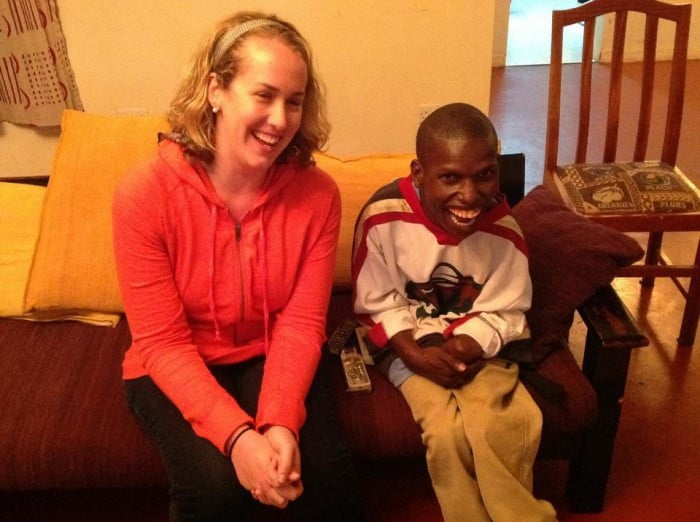 In August of 2012, my husband and I traveled to Malawi and Kenya for our first overseas adventure since he took over as President and CEO of Feed The Children a few months before. It was a trip of many jewels but one of the most important encounters for me during our time there was with a group of young men called the Hardy Boys—a group of 20s and 30s something young men with special needs. They had lived in the Feed The Children orphanage in Nairobi since childhood but had aged out of the system. (Thus, the “Hardy House” was created for them to live in for the rest of their life for most all of them have no family that is interested in caring for them).
In August of 2012, my husband and I traveled to Malawi and Kenya for our first overseas adventure since he took over as President and CEO of Feed The Children a few months before. It was a trip of many jewels but one of the most important encounters for me during our time there was with a group of young men called the Hardy Boys—a group of 20s and 30s something young men with special needs. They had lived in the Feed The Children orphanage in Nairobi since childhood but had aged out of the system. (Thus, the “Hardy House” was created for them to live in for the rest of their life for most all of them have no family that is interested in caring for them).
Though full of life challenges and unable to do the one thing that they all wanted to do—work—for there are no jobs with persons with disabilities in Kenya (like most developing countries), the joy in their faces communicated to us beyond words and moved me to tears. During our time, one of the men, Christian gave me a year’s worth of his beautiful paintings in a sketchbook (pictured to the right). We ate together a meal with foods they thought we’d like the best. And later around chairs, we sang one of their favorite songs, “Kumbayah” together while drool rolled down the cheeks of some their faces and the blind ones twitched their heads back and forth and the rest of them couldn’t stop clapping their hands.
It was in this motley crew that most everyone in the world had written off as unimportant and insignificant that I saw something about God that I, as a seminary educated, able-bodied, able sighted person hardly knew: that God dwells where people have given their life to Jesus—all of it.
And this is truth: the way God sees the world is much like the Hardy boys do. And on that August day in their living room, I was standing on holy ground.
This does not mean, however, that we should any way glamorize the harsh realities of poverty. It does not mean that embodying compassion or enduring persecution is a bed of roses. It does not mean that hungering for righteousness is a delightful kind of labor.
No- not at all: injustice is real in this world and God asks us to lend our voices to do what we can to speak out against the greatest ills. Doesn’t our Old Testament reading for this morning make it plain? “What does the Lord require of you? But to do justice and to love mercy and to walk humbly with our God.”
But in all of this, the world that God sees and Jesus exhorts us to get to know is a world where every mourner is comforted, where the meek inherit the earth, and where those who endure persecution KNOW they are doing divine work. And in this world there is joy, even in the midst of pain and suffering.
This kind of life goes against all modern notions of happiness. For in a nation where we constitute the "good life" with a well-paying job, children in good schools, the ability to go to see as many movies in a weekend that we want, granite countertops, stainless steel appliances and having enough money to hire someone to clean our house and cut our grass, we don’t realize how POOR and OFF the mark we really all.
Again, not that having things is bad. But just that we’ve got the narrative of blessing all wrong.
Are we focused alone on our little kingdom on this earth or are we seeing the kingdom of heaven come to earth?
This is what I know without a shadow of doubt: when we come and see the world that God sees it, we are blessed. God's kingdom IS among us! How could we not be?
We are blessed as we mourn.
We are blessed as we purify our hearts.
We are blessed as we make peace.
We are blessed because we are living within the kingdom of heaven. And though onlookers may say falsehoods about us and mock the ways we spend our time, our talents and our money, we can not be shaken for God gives us vision for the plans of his world. We just need to follow.
For Jesus’ coming and showing us the way to the kingdom of heaven, today we can rejoice and be glad. There’s more than meets the eye in this world in which we live and this is good news for all of us today.
AMEN
 My travels on behalf of Feed The Children this week have taken Kevin and I back to the continent of Africa.
My travels on behalf of Feed The Children this week have taken Kevin and I back to the continent of Africa.
It's been over a year since we last stood on this land.
It has been a year when our hearts have grown in courage-- for all that a responsibility for such a time as this.
It has been a year when our minds have grown in compassion-- for our shared partnership with our friends and co-laborers in these countries.
It has been a year when our knees have more met the ground in prayer-- for all the injustices that seek to destroy the good that is possible.
As my jet legged feet took its first steps off the plane yesterday, I felt the enormity of all that this visit could mean wash over me.
We. Are. Here. Again.
My first words upon seeing the rolling hills and the sea of dark faces and the distinct smells were simply, "Wow. I'm glad to be home." Yes, home.
There's something about the continent of Africa that has always drawn me in, re-shaped my thinking and then set me on my way in new paths of service. I've always felt welcomed here in ways I haven't in other places. I've always welcomed any opportunity to visit.
As I pondered all of these things on the plane, I found myself making a list of the previous visits. And as I penned the dates and countries seen on the previous 3 trips, I couldn't help but notice that my life changed EVERY SINGLE TIME I set foot here.
After a 1998 visit, I came home disillusioned about the term "missionary" vowing I'd never be one. While an incredibly painful experience (because of Americans I met here, I must add), I ultimately believe it was the experience that set the direction of my path toward the pastorate-- that thing I thought at the time that women couldn't do.
After a 2003 visit, I came home inspired to not remember that my African brothers and sisters were a part of my larger human family. The atrocities of the 1994 genocide in Rwanda touched my heart in a profound way. How did this go on in my lifetime and I knew nothing about it?
After a 2012 visit, I came home with a changed heart about the possibilities and reality of who and what Feed The Children is and what it could be in the future. During our travels, I made what I feel is a life long friend-- a friend would become a sweet sister in all the waiting awaiting me.
So, I have to wonder on this 2013 visit, what will shift in me as a result in being here? How will my heart go home? What amazing person will I met? How will my soul leap in understanding of what was previously unseen?
Only God knows the answers to such questions.
I hold on this, though: my heart must be open. My heart must be wide open to this place-- its people, its smells, its food, its problems, its hopes, its worries, its gladness. And in doing so, this next chapter that I'm writing here will be another beautiful one. A beautiful one indeed!
But I can't seem to get these boys we met in Africa out of my mind because as many of you know, some of the greatest gems of experiences take time to sink in . . .
One of my favorite experiences of the Kenya trip Kevin and I took last year was the time spent with the young men of the Hardy House-- a group of 20s and 30s something young men with special needs. They'd lived in the FTC orphanage in Nairobi since childhood but who had aged out of the system with nowhere else to go. (Thus, the "Hardy House" was created for them to live in for the rest of their life).
Over the course of two days, we shared a dinner with them. We slept in their guest room. We woke up watching the cartoon "Fat Albert" on their tv and laughing with them.
When it came time for us to leave, the Hardy Boys became serious: "Could you take us back with you to America? . . . Could you find us work there? We just want to do something . . . We want to feel useful."
While the "take us back to America with you" part was expected (for those of you who've traveled overseas in the developing world know that this is a common request made by folks desperate for a way out of poverty), the "we just want to do something . . . we want to be useful" part surprised me. Because before us sat young men who were blind, deaf, and full of mental and physical challenges of all kinds.
I wondered in the moment: "How did they know that they weren't useful? Weren't they satisfied to be in a safe and loving place with folks watching out for them for the rest of their lives?"
The thing is in Kenya, like other developing countries, with few resources to go around for even the able-bodied citizens, the citizens with physical or mental challenges of any kind are naturally tossed to the side. They are sent away to the alleys. They are hidden in the back rooms of homes. They aren't acknowledged as full family members. They are not sent to school with an individual education plan, as children in America with the same challenges are. Deep sigh.
And, therefore if young men like the Hardy boys make it into adulthood in a place like Kenya (thanks to the quality of the Feed The Children staff and programs), there's no social services to offer them a non-discriminatory hiring or then accommodations on the job. They simply don't get to work.
But they said to us: "We just want to work . . . We want to be useful." They're still hoping for a better life.
And I don't think my Kenyan friends are alone in their longings.
All of us hold a deep desire to be useful-- to do something that matters to someone, to contribute so that when we die we've made our mark.
As much as we told the Hardy boys that we loved them and that their concern for us was useful, it didn't seem to satisfy them.
I believe we can't muster up usefulness for another. A person has to feel it. A person has to live it. Whether it comes from a job completed with our hands or from a relationship where we know our presence matters to another person-- usefulness is something we crave. We crave it so much that many of us will often go to the extremes to create it:
We'll butt our way into a position on the steering committees at work or the PTA at our kid's school or on a neighborhood board with meetings we hate-- just to say we're doing something of value in our free time.
We'll not say no when a friend asks a favor-- just to have proof of our importance to him or her.
We'll fill up our weekends with family and social events of all kinds-- just to feel like our presence matters to those we claim as our own.
It's not that "usefulness" is a wrong desire or that our Creator doesn't long for us to use our gifts in meaningful ways, but sometimes those of us with every opportunity in the world take our work to the extreme. We don't stop. We never pause to consider our motivation for going and doing and doing some more. We forget that there are those in this world who want to be seen and heard and validated for doing something AND we've got the gifts to help them.
As I keep the Hardy boys and their joy (I mean aren't their smiles in the picture above precious?), their hope, and their desire to find useful work in dear places of my heart, I hope that a way might be made through Feed The Children in the future for them to "do" more. I hope that my resources and the resources of others like you might be funneled toward their needs.
But, I also hope that God will stop me when I get busy doing "useful" projects which were never my business to be a part of in the first place. I hope that will have more loving eyes to see those who need to feel useful to me and I to them.
I hope that you and I can continue this conversation about usefulness because I'd really love to hear what you have to say too.
It's always fun in my clergy circles to share stories about creative ways we've officiated and served communion. Especially during service trip experiences when the normal supplies are are rare to find, I've known colleagues who have served communion with elements like sweet tea, Cheetos or cinnamon rolls. I've even known colleagues who have even used chocolate wine when a red wine can't be found.
The theology of switching up the elements from the traditional bread and wine (or grape juice) can be frowned upon or celebrated depending on who you talk to. It has been said that communion in the Protestant tradition is really about a shared meal, a common cup, and a collective community so what does it matter what you actually eat or drink? However, personally, I tend to be more traditional in my approach-- bread and wine work just fine for me. Yet I understand why changing the approach isn't so bad every now and then. It is easy for us to get caught going through the motions of hearing: "This is my body broken for you" and "This is my blood shed for you" that we forget the spiritual significance of what we are doing in the first place.
Two weeks ago now, when Kevin and I first arrived in Kenya and began spending time with the staff (all 220+ of them) gathered at the children's center for a day of installation and celebration of Kevin as the new President of Feed The Children International, of course we ate together. It was like Christmas in August, we learned as we shared a meal of chicken, greens, rice,salads, arrow root, bread, potatoes and soda. It was the finest traditional feast they could offer.
But no festive gathering like this one we learned would be complete without a cake. A special cake for the occasion was prepared for us. And a cake cutting ceremony was in order. Kevin and I were invited to the cake cutting table in front of everyone as the community choir sang. Though Kevin and it felt a lot like our wedding (as they later made us feed each other while everyone took pictures . . a quite funny site! And, no I didn't smear it on Kevin's face), learning about the meaning behind the whole event made it all worth it.
Esther, the director of school feeding programs and the MC for the day, passionately explained to all of us, why we were cutting the cake. She said something like this:
If you think about the parts that go into making a cake . . . The eggs, the flour, the sugar, the water, etc you realize that none of these elements are very good if at all on their own. But when you mix them together, adding just the right amounts (and no more than is needed), you get a sweet dessert. You get something that tastes good that all people can enjoy.
In the same way, all of us today are a part of a larger family. We who are many believe that our fellowship is better and sweeter when it is shared. Let this cake today be a participation for you in knowing that each of us is part of a larger family. And when we come together in just the right way, our community and love shared among us is what we call the best life has to offer.
Then, Kevin and I (along with the two other US based FTC staff) were asked to take the plates of little chunks of cake on a plate and pass them out individually to the staff and children as they gathered in a semicircle around us. Simultaneously, everyone continued to enjoy their Sprite, Fanta and Pespi.
If this was not a communion like act, I don't know what is!
As I served the cake from my hand to their napkin, chills ran down my spine and I caught myself saying "the peace of the Lord be with you" on several occasions though no one asked me to do so. It felt to me so much like what I do with my own congregation each Sunday when I give them the elements through hand to hand contact, looking them in the eyes and wishing blessing each participant. In the giving and receiving of the elements as a gathered community, we remember in gratitude the one who gave of his very life for us all.
While the traditions of the church and the communion liturgies that we've passed down from generation to generation are dear treasures in our spiritual lives, I believe, we can't help but keep looking for God's ongoing teachable moments for us. For sometimes the bread of Christ just might come to us in white coconut iced cakes and His cup to us in glass soda bottles. And as we partake, we'll remember the expansive beauty in the Body of our Lord. And taste for ourselves that life in Christian community is very good.
When is the last time you felt alive? When is the last time you felt free with passion bringing light to your eyes that you thought was long past? When is the last time you danced?
For me, being connected to new ideas and meaningful conversations always enlivens.
In this matter, if you've followed my blog for long you know that reading and being introduced to quality books is one of my favorite things. So, how grateful I was to be given some new texts to check out via conversations with the regional director of Feed the Children East Africa, Seintje who I met over the course of our recent travels. Seintje, being a native of Holland and seminary trained in the UK, shared with me several of her favorites that were new finds for my collection.
And I didn't have to wait long to find them. After a stop at a Catholic bookstore in downtown Nairobi a couple of days ago, I was able to pick up a copy of one of her recommendations called Awareness: the Perils and Opportunities of Reality by Anthony De Mello.
I was immediately drawn in to this book of insightful spiritual wisdom from the very first pages. Especially as I read these words of exhortation by Mello: "My business is to do my thing, to dance my dance. If you profit from it, fine; if you don't too bad! As the Arabs say, 'The nature of rain is the same, but it makes thorns grow in the marshes and flowers in the gardens.'"
What I love about this particular quote is the clarity of the idea shared. It's direct and to the point: how often are we all guilty of moving in the direction of someone else's life path and not our own. We so easily make the moves of our lives based on a cultural blueprint rather than what might be our new course to blaze. When we do this, we aren't awake to our own lives, as Mello writes. We are sleep walking instead.
I met several large groups of women this week who greeted our Feed the Children delegation with dancing and singing. No sleep walking for them, literally. As we got out of the car on several occasions, the welcome started cheering loudly and dancing with hands raised! These women could have had easily shied away from being themselves, we were strangers after all. But no matter what excuses they could have given-- they danced. They danced in their own way at their own pace with joy on their faces to be able to share their lives with us.
So too, this must be our way, says Mello. We all have our dance and we must get to it. Our dancing will be like rain on the parched ground for some who have forgotten what joy looks like. Seeing us dance might remind them how to dance again too right where they are.
Yet, others, who are walking in the dark (and very much liking the way things are) will look at our dancing and point their fingers in exclamation of our insanity. Stop living this way! Stop being so happy! You can't live like this. You're exposing our anxiety and loneliness. You're exposing our fear.
They'll say these things because they are jealous of our freedom. They'll wish they could cut loose too. They haven't yet learned to dance.
But no matter what, our invitation to dance by our God remains. We all get this invitation. Our dance card is ready. Time will tell where we will go. We just have to get to it: dancing our dance. It's ours to dance alone.
Over the course of our travels and many meetings with Feed the Children staff, partners and other NGO leaders there is one question I find myself asking these folks over and over: "Why do you do this work?"
The answers I have gotten from Africans and expats alike have varied but the heart of all of them has come back to calling.
"We are here to serve because we can do nothing else, be nowhere else."
In fact, a line that was said in our program with the staff last Saturday as part of the litany of blessing for the week ahead was "God has called us to serve." Drivers were called to serve. Cooks were called to serve. Administrators were called to serve. All staff of Feed the Children, we said together were called to serve.
In my pastoral work, I talk a lot about calling. I preach a lot about calling texts in scriptures. And I even call out the callings in others when I sit with folks in counseling sessions. But somehow hearing about the motivation behind why the many here on the ground here do what they do has made me stop to ponder calling once again.
Calling I believe is more beautiful than I ever imagined. For, as I have observed it and even felt it in my own heart, I have observed calling as a gift. It's a gift that can ground the right people in the right situations even if these are circumstances that others many call difficult or unimaginable. Calling is God's way of helping us be in the place where we are blessed by our giving and receiving.
When you have a calling, you can't say no even when it leads you to feed hungry children in the smelly slums.
When you have a calling, you can't say no even it leads you to remote villages to love on kids on bumpy roads for long hours.
When you have a calling, you can't say no even if it wrecks the plans you previously had for your life only one day before.
I am excited to continue to support the work of Feed the Children through Kevin's calling to be there and thus mine in some way too. I truly consider this time in our lives all the joy. How did I get to be so lucky?
Often times in the church, we think of spiritual disciplines as a practice which we can qualify as holy action. Practices like praying, reading scripture, doing works of charity and the like are often the prescriptions for spiritual growth.
But Barbara Brown Taylor in her book, Altar in the World (which we at Washington Plaza along with our friends at Martin Luther King Christian will be studying together this fall), speaks of how we find God in the most ordinary of circumstances. Altars she writes can be anywhere we encounter the holy. It's a discipline for all of us to simply pay attention.
This week, while on travel in Kenya and Malawi, I have a new altar to add to my list and that is international travel.
As many of you know who have traveled throughout the developing world, nothing ever moves as fast as it does in the United States or even Europe. Not that it is bad (I happen to like the change) but it is simply different.
Bags get lost easily on flights.
Traffic jams on narrow roads make getting from one place to another a chore.
You look for something you need and can't find it.
Water that was once warm becomes stone cold.
The electricity goes out for no apparent reason.
And it is just life.
In these circumstances as a non native you have a choice. You can get angry. You can grow in misery of why things aren't the way you wish they were.
Or you can go with the flow. You can embrace the moment. And you can accept the challenge as a spiritual discipline.
What might God be saying to me about who is ultimately in control?
What might be learned about enjoying the company for the journey instead of being so consumed in reaching the destination?
What might I really need instead of just want for my personal comfort?
I am having fun this week in these out of the norm circumstances, hoping that if I embrace them I might just learn more about myself and God's ways of being with us in the process.